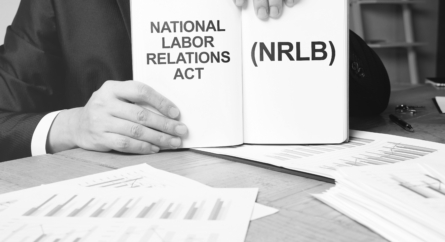Client Alert: Could a Nationwide Virtual Ban on Non-Compete Agreements Be the Future?
A bipartisan pair of United States senators, Todd Young (R-Ind.) and Chris Murphy (D-Conn.), recently introduced the Workforce Mobility Act of 2019 (the “Act”), federal legislation designed to drastically limit the use of non-compete agreements.
This proposed federal legislation comes on the heels of a recent and growing trend of non-compete reform at the state level, including in Massachusetts, Oregon, Illinois and Maryland. However, the proposed Act is far more restrictive than many recently passed state laws, and, if passed in its current form, would result in a virtual ban on non-compete agreements between employers covered under the Act and their employees, with only a few narrow exceptions.
Specifically, the Workforce Mobility Act would:
- narrow the use of non-compete agreements to include only necessary instances of a dissolution of a partnership or the sale of a business;
- place the enforcement responsibility on the Federal Trade Commission and the Department of Labor, and also provide a private right of action;
- require employers to make their employees aware of the limitation on non-competes and grant the Department of Labor the authority to make the public aware of the limitation; and
- require the Federal Trade Commission and the Department of Labor to submit a report to Congress on any enforcement actions taken.
In addition, in March 2019, Senators Young and Murphy led a bipartisan Senate letter urging the Government Accountability Office to investigate the use and abuse of non-compete agreements (the “GAO Letter”).
At least one leading presidential candidate, Senator Elizabeth Warren (D-Mass.), is interested in non-compete reform: just last year, she co-sponsored a non-compete reform bill with Senator Murphy and Senator Ron Wyden (D-Ore.) and she was also a signatory to the GAO Letter.
The potential for federal non-compete reform may garner even more attention in the future, particularly if Senator Warren captures the Democratic nomination and the presidency, and employers should make sure to stay abreast of any new developments at the federal level. Employers should also be cognizant of the shifting landscape of non-compete law at the state level, particularly if they are located or conduct business in states like Massachusetts that have recently passed non-compete legislation.
As non-compete agreements become harder to enforce, employers should consider seeking advice from counsel to review existing employment agreements and to establish best practices with respect to future non-compete agreements.
Categorized: Client Alerts, Publications
Tagged In: Non-Compete agreements, non-compete, Massachusetts employment laws, Workforce Mobility Act of 2019, non-compete reform










